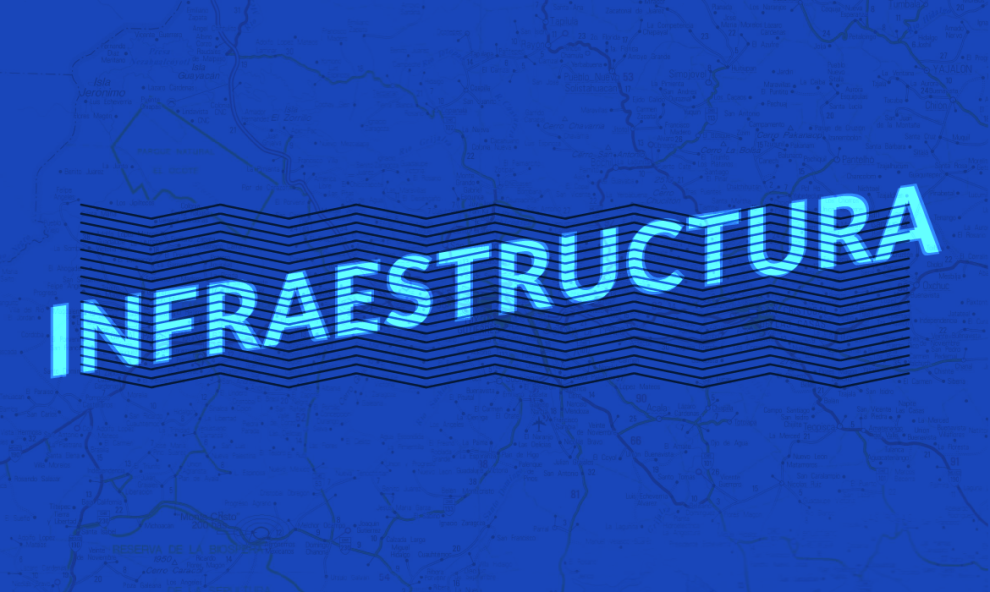Lao Tzu, the father of Taoism, said that “he who does not trust enough, will not be trusted”. Mexico’s government officials have never trusted the population, this perhaps the reason that the citizenry’s trust in them is ephemeral. The theme is basic for identifying our lacks enveloping the possibility of adopting a development strategy that is susceptible to being successful.
The old debate with respect to the functioning capacity of a government is concerned with what commands more weight: the leaders, or the institutions. Typically, the least developed societies are characterized by weak institutions, while the most developed are those possessing strong institutional structures that regulate the life of the society and that rapidly funnel the whims of the people into these. From this perspective, there is not the least doubt that the strength of the institutions of a country constitutes a key factor in their capacity for development.
Institutions are important because they depersonalize the decision-making processes and confer certainty upon the citizen. An institutionalized society does not depend on whether an individual –be it the president, the prime minister, or the most modest bureaucrat- gets out on the right side of the bed every morning or feels like attending to the citizenry. Rather, institutions establish limits and processes that hinder these individuals from abusing power. Thus, a good government can achieve the coherent and effective functioning of the entire governmental structure, but a bad one does not wield sufficient power to wreak damage on it. Institutional strength permits avoidance of abuse of the citizenry by an exceptional but perverse leader.
The function of leadership is more complex. A good leader can do magic in a society, but a bad one can cause terrible damage. Paul Johnson* affirms that Churchill was a great leader because he procured the confidence of the society. “We trusted in Winston Churchill to save us, and he in turn, trusted the British people to have the courage and endurance and the intelligence and strength to make salvation possible”. In institutionalized societies, a good leader can be the factor for transformation without placing social stability at risk.
Something similar can occur in underdeveloped societies, but the risks are much greater. One never knows whether a leader will be a positive or a negative factor. The absence of strong institutions that limit the leader or that make him or her accountable converts him or her into an uncertain factor who could as easily be a dictator as an exceptional constructer. Anyone observing the panorama of our history or that of nations similar to ours will find enlightening examples in this regard. Brazil’s ex-president Lula da Silva proved to be an exceptional leader, but he had to run four times for president to win over the population’s trust.
In the eighties, we had a formidable example of the successes and risks of a strong leader. Carlos Salinas was an exceptional leader who broke with the traditional governmental measuring rods, changed fundamental structures, especially in the economy, and transgressed against the power factors that we currently call “de facto powers”. All of this earned him the trust of the population and made it possible for him to advance a significant reform process. This same person eventually made decisions in the currency exchange arena and through the presidential succession process, in addition to mismanaged familial business dealings, which led to one of the deepest crises in our recent history. Vicente Fox did not lead us into an economic crisis, but was elected within an environment of exacerbated expectations that he did not satisfy, but also one which Fox was not even capable of managing, all of which led to enormous and profound disillusionment. Both cases displayed two sides of the same coin: the risks and virtues of a leader in a society without strong institutions.
It may be that much of the pessimism that permeates our present environment is the product of the destruction of illusions generated by these two presidential figures, exceptional leaders who, in the last analysis, disenchanted the citizenry who trusted in them and who in the end felt betrayed, to the extent of their rebuffing any proposal for change: the population delivered their trust to them, but received nothing in return. Had there been strong institutions, the damage would have been less, but not so the disillusion. When expectations are so great, as Obama is now coming to discover, disillusionment is inevitable.
In the same article, Johnson argues that the transcendence of leaders such as Margaret Thatcher and Ronald Reagan in their respective countries was due to that they earned the trust of the citizens because the leaders trusted in the citizenry. “The processes of earning and granting trust are gradual and almost metaphysical. So it is that a good leader, at some point, ceases to be a politician, an office holder; he or she becomes a trusted institution. And from that point on the nation becomes healthier, more secure, and thus, happier”.
Nomination for the 2012 presidential candidates will take place later this year. The population will surely expect that the individuals who run for this office will be capable of exercising effective leadership, but one that lies within the framework of the institutional frameworks in effect that, no matter how weak, are crucial for avoiding replication of cases such as those of Venezuela. Perhaps the greatest challenge will be to find a leader capable of inspiring the population by his or her integrity and strength of character, as well as by their vision and judgment, all of which are indispensable for gaining the confidence of the citizenry and exercising the presidency effectively. If there is something that we require, it is a leader inclined to confront the special interests that hound and paralyze the country but, at the same time, one who is able to understand the limits conferred by the necessary trust of the citizenry.
Fukuyama, the author of Trust, asserts that societies that achieve development are those that construct a solid foundation of trust: trust among citizens to be able to effect market exchanges and transactions or to arrive at agreements in the political terrain. The sole possibility of breaking away from our institutional weaknesses, as well as from the powers that paralyze the country, resides in a leadership that is capable of understanding the risks and challenges, and one that despite this, earns the trust of the citizenry. For Paul Johnson, this is only possible when the leader trusts the citizenry, something exceedingly more difficult to attain and even worse given our recent experiences.
* Forbes, November 18, 2010






Comments